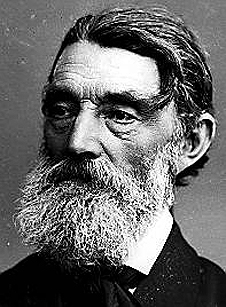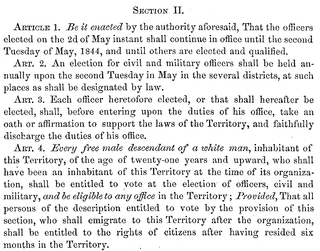
The Statute of Westminster 1931 is an Act of the Parliament of the United Kingdom whose modified versions are now domestic law within Australia and Canada; it has been repealed in New Zealand and implicitly in former Dominions that are no longer Commonwealth realms. Passed on 11 December 1931, the act, either immediately or upon ratification, effectively both established the legislative independence of the self-governing Dominions of the British Empire from the United Kingdom and bound them all to seek each other's approval for changes to monarchical titles and the common line of succession. It thus became a statutory embodiment of the principles of equality and common allegiance to the Crown set out in the Balfour Declaration of 1926. As the statute removed nearly all of the British parliament's authority to legislate for the Dominions, it had the effect of making the Dominions largely sovereign nations in their own right. It was a crucial step in the development of the Dominions as separate states.
The politics of Norway take place in the framework of a parliamentary representative democratic constitutional monarchy. Executive power is exercised by the Council of State, the cabinet, led by the Prime Minister of Norway. Legislative power is vested in both the government and the legislature, the Storting, elected within a multi-party system. The judiciary is independent of the executive branch and the legislature.
The Constitution of Norway was first adopted on 16 May and subsequently signed and dated on 17 May 1814 by the Norwegian Constituent Assembly at Eidsvoll. It was at the time considered to be one of the most liberal or radically democratic constitutions in the world, and it is today the second oldest single-document national constitution in Europe after the Constitution of Poland and second oldest in the world still in continuous force after the United States Constitution, as the Polish 3 May Constitution survived for less than 2 years. 17 May is the National Day of Norway.

The president of India is the ceremonial head of state of India and the commander-in-chief of the Indian Armed Forces.

Sweden and Norway or Sweden–Norway, officially the United Kingdoms of Sweden and Norway, or as the United Kingdoms, was a personal union of the separate kingdoms of Sweden and Norway under a common monarch and common foreign policy that lasted from 1814 until its peaceful dissolution in 1905.
A constitutional amendment is a modification of the constitution of a polity, organization or other type of entity. Amendments are often interwoven into the relevant sections of an existing constitution, directly altering the text. Conversely, they can be appended to the constitution as supplemental additions (codicils), thus changing the frame of government without altering the existing text of the document.
A decree is a rule of law usually issued by a head of state, according to certain procedures. It has the force of law. The particular term used for this concept may vary from country to country. The executive orders made by the President of the United States, for example, are decrees. In non-legal English usage, however, the term refers to any authoritarian decision. Documents or archives in the format of royal decrees or farming were issued by rulers.

Johan Sverdrup was a Norwegian politician from the Liberal Party. He was the first Prime Minister of Norway after the introduction of parliamentarism. Sverdrup was Prime Minister from 1884 to 1889.

The Constitution of the State of Texas is the document that describes the structure and function of the government of the U.S. state of Texas.
A local ordinance is a law for a political division smaller than a state or nation, i.e., a local government such as a municipality, county, parish, prefecture, etc.

The Norwegian monarch is the monarchical head of state of Norway, which is a constitutional and hereditary monarchy with a parliamentary system. The Norwegian monarchy can trace its line back to the reign of Harald Fairhair and the previous petty kingdoms which were united to form Norway; it has been in unions with both Sweden and Denmark for long periods.

The Irish Free State (Agreement) Act 1922 was an Act of the British Parliament passed on 31 March 1922. It gave the force of law to the Anglo-Irish Treaty, which was scheduled to the Act.

The New Zealand Constitution Act 1852 was an Act of the Parliament of the United Kingdom that granted self-government to the Colony of New Zealand. It was the second such Act, the previous 1846 Act not having been fully implemented.

The Organic Laws of Oregon were two sets of legislation passed in the 1840s by a group of primarily American settlers based in the Willamette Valley. These laws were drafted after the Champoeg Meetings and created the structure of a white government in the Oregon Country. At the last Champoeg Meeting in May 1843, the majority of the male European descendants present voted to create what became the Provisional Government of Oregon. Laws were drafted by the committee and accepted by a popular vote in July. These laws were reformed by a second version in 1845.

In French politics, an ordonnance is a statutory instrument issued by the Council of Ministers in an area of law normally reserved for primary legislation enacted by the French Parliament. They function as temporary statutes pending ratification by the Parliament; failing ratification they function as mere executive regulations.

The legal status of Texas is the standing of Texas as a political entity. While Texas has been part of various political entities throughout its history, including 10 years during 1836–1846 as the independent Republic of Texas, the current legal status is as a state of the United States of America.
The Council of State, is a formal body composed of the most senior government ministers chosen by the Prime Minister, and functions as the collective decision-making organ constituting the executive branch of the Kingdom. The council simultaneously plays the role of privy council as well as government Cabinet.

The Wet van 15 mei 1829, houdende algemeene bepalingen der wetgeving van het Koningrijk is a principal law of the Netherlands containing a number of basic precepts pertaining to the applicability of the law in general. It is considered part of the body of constitutional law of the Netherlands, which is composed primarily of Constitution of the Netherlands and the Charter for the Kingdom of the Netherlands.

The Forty-third Amendment of the Constitution of India, officially known as the Constitution Act, 1977, repealed six articles that had been inserted into the Constitution by the 42nd Amendment which had been enacted by the Indira Gandhi-led Indian National Congress during the Emergency. The 43rd Amendment was enacted by the newly-elected Janata Party which had won the 1977 general elections campaigning on a promise to "restore the Constitution to the condition it was in before the Emergency".












